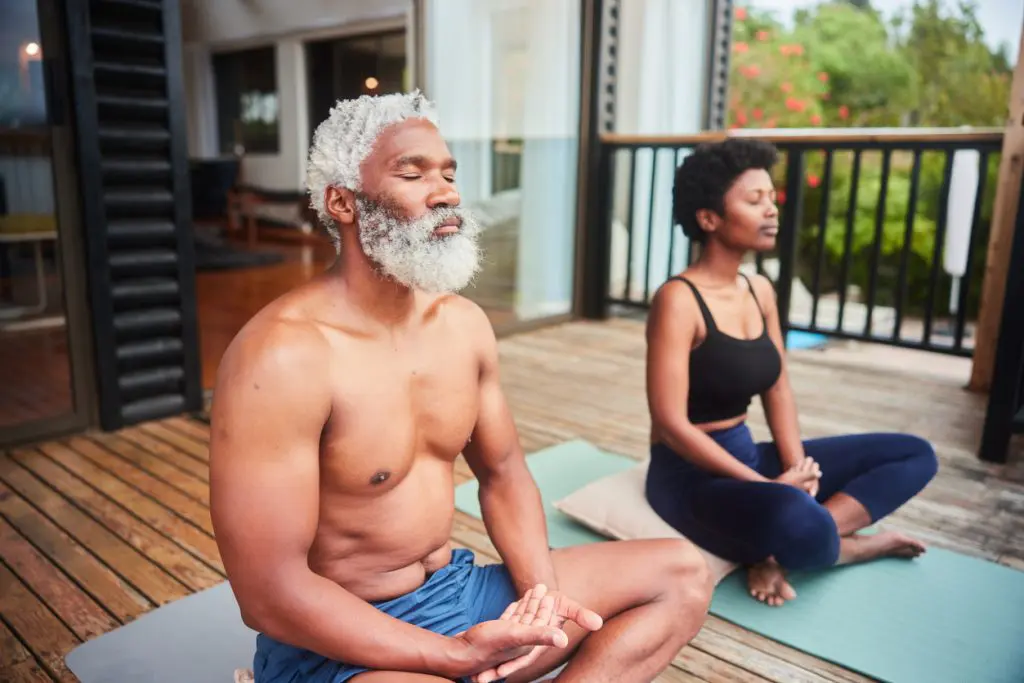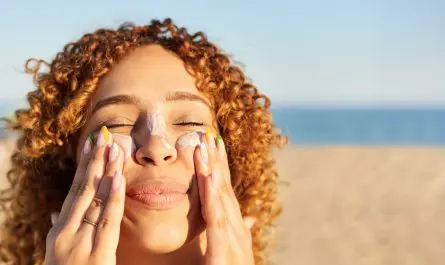Maintaining a healthy lifestyle is more crucial than ever in today’s fast-paced world. With the constant demands of work, family, and social obligations, it’s easy to neglect our well-being. However, integrating self-care into our daily routines can lead to a balanced and fulfilling life. This guide presents ten essential self-care activities that can significantly enhance your physical, mental, and emotional health. By prioritizing self-care, you can boost your energy levels, improve your mood, and increase your overall quality of life.
Whether you’re new to self-care or looking to deepen your practice, these tips will help you make informed decisions about your health. From regular exercise and healthy eating to mindfulness and social connections, each section offers practical advice and resources to support your journey. Investing in self-care is an investment in yourself, and this guide aims to provide the tools and knowledge you need to create a sustainable and enjoyable self-care routine.

Tip 1: Regular Exercise
Regular physical activity is a cornerstone of a healthy lifestyle. Exercise not only improves your physical health but also boosts your mental well-being. Engaging in activities like walking, running, swimming, or yoga can reduce stress, enhance mood, and increase energy levels. Aim for at least 150 minutes of moderate-intensity exercise per week, as recommended by health experts.
In addition to traditional exercises, consider incorporating more movement into your daily routine. Simple activities such as taking the stairs instead of the elevator, going for a brisk walk during lunch breaks, or doing light stretches while watching TV can make a significant difference. Investing in wearable fitness trackers can also help you monitor your activity levels and stay motivated.
- Types of Exercise: Cardiovascular, strength training, flexibility exercises
- Integration Tips: Schedule workouts, find a workout buddy, set realistic goals
- Resources: Fitness apps (e.g., MyFitnessPal, Strava), local gyms, online workout videos
Tip 2: Healthy Eating
A balanced diet is essential for maintaining good health and preventing chronic diseases. Eating a variety of nutrient-rich foods, including fruits, vegetables, lean proteins, and whole grains, can help you feel your best. Planning your meals and preparing them at home can ensure you eat healthily and save money.
To make healthy eating more enjoyable, experiment with new recipes and ingredients. Trying different cuisines and cooking methods can keep your meals exciting and prevent dietary boredom. Additionally, consider joining a local community-supported agriculture (CSA) program to receive fresh, seasonal produce while supporting local farmers.
- Meal Planning Tips: Plan weekly menus, prep ingredients in advance, cook in batches
- Healthy Eating Resources: Nutrition apps (e.g., MyPlate, Yummly), cookbooks, meal delivery services
Tip 3: Adequate Sleep
Quality sleep is vital for overall health and well-being. Lack of sleep can affect your mood, cognitive function, and physical health. Aim for 7-9 hours of sleep per night and establish a relaxing bedtime routine to improve your sleep quality.
Creating a sleep-friendly environment is crucial for getting a good night’s rest. Ensure your bedroom is cool, dark, and quiet. Consider investing in a comfortable mattress and pillows that support your preferred sleeping position. Using a white noise machine or earplugs can help block out disruptive sounds, promoting more restful sleep.
- Sleep Improvement Tips: Maintain a consistent sleep schedule, create a restful environment, avoid screens before bed
- Products and Apps: White noise machines, blackout curtains, sleep tracking apps (e.g., Sleep Cycle, Calm)
Tip 4: Mindfulness and Meditation

Mindfulness and meditation practices can help reduce stress, improve focus, and enhance emotional health. Incorporating these practices into your daily routine can lead to a more balanced and peaceful life. Start with just a few minutes each day and gradually increase the duration.
To deepen your mindfulness practice, consider joining a local meditation group or attending a mindfulness retreat. These experiences can provide valuable insights, support, and a sense of community. Additionally, reading books and listening to podcasts on mindfulness can offer new techniques and perspectives to enrich your practice.
- Mindfulness Practices: Deep breathing exercises, guided meditation, mindful walking
- Recommended Apps: Headspace, Insight Timer, Calm
Tip 5: Hydration
Staying hydrated is crucial for maintaining your body’s functions and overall health. Drinking adequate water helps regulate body temperature, keeps joints lubricated, and aids in digestion. Aim to drink at least eight 8-ounce glasses of water daily, and more if you’re active.
In addition to plain water, you can stay hydrated by consuming water-rich foods such as fruits and vegetables. Cucumbers, watermelon, and oranges are excellent choices. Herbal teas and infused water can also be refreshing alternatives to plain water. Keep track of your hydration by using apps that remind you to drink water throughout the day.
- Hydration Tips: Carry a reusable water bottle, set reminders to drink water, flavor your water with fruits
- Helpful Products: Water bottles with time markers, hydration tracking apps (e.g., WaterMinder, Hydro Coach)
Tip 6: Social Connections
Strong social connections can significantly impact your mental and emotional well-being. Building and maintaining relationships with family, friends, and community members can provide support, reduce stress, and increase happiness. Make time for social activities and stay connected with loved ones.
To strengthen your social network, consider joining clubs or organizations that align with your interests. Volunteering for local causes can also be a great way to meet new people and give back to the community. Virtual gatherings and video calls can help you stay connected with distant friends and family members, ensuring you maintain those important relationships.
- Social Connection Tips: Schedule regular meetups, join clubs or groups, volunteer in your community
- Tools and Apps: Social media platforms, meetup apps (e.g., Meetup, Bumble BFF)
Tip 7: Hobbies and Leisure Activities
Engaging in hobbies and leisure activities is essential for relaxation and personal fulfillment. Pursuing interests outside of work can reduce stress, boost creativity, and provide a sense of accomplishment. Explore new hobbies or revisit old ones to find joy and satisfaction.
To discover new hobbies, try taking classes or workshops in your area or online. Platforms like Skillshare and Coursera offer a wide range of courses in various subjects. Joining local groups or online communities related to your hobbies can provide inspiration, support, and a sense of belonging.
- Hobby Ideas: Gardening, painting, playing an instrument, hiking
- Resources: Local community centers, online classes, hobby supply stores
Tip 8: Time Management
Effective time management can help reduce stress and increase productivity. By prioritizing tasks and setting realistic goals, you can create a balanced schedule that allows time for work, self-care, and leisure. Utilize tools and strategies to stay organized and focused.
Experiment with different time management techniques, such as the Pomodoro Technique or time blocking, to find what works best for you. Regularly review and adjust your schedule to ensure it aligns with your priorities and goals. Seeking advice from productivity experts or reading books on time management can also provide valuable insights.
- Time Management Tips: Use a planner, set daily priorities, take regular breaks
- Recommended Tools: Digital calendars (e.g., Google Calendar, Outlook), productivity apps (e.g., Todoist, Trello)
Tip 9: Professional Help

Recognizing when to seek professional help is crucial for maintaining mental and emotional health. Therapy, counseling, and coaching can provide support and guidance through challenging times. Don’t hesitate to reach out for help when needed.
To find the right professional, consider seeking recommendations from friends, family, or your primary care provider. Many therapists and counselors offer virtual sessions, making it easier to fit therapy into your schedule. Ensure the professional you choose is licensed and specializes in the areas where you need support.
- Types of Professional Help: Psychologists, counselors, life coaches
- Finding Help: Online directories, referrals from primary care providers, community mental health centers
Tip 10: Digital Detox
Excessive screen time can negatively impact your health and well-being. Taking regular breaks from digital devices can reduce eye strain, improve sleep, and enhance real-life interactions. Implement a digital detox routine to manage your screen time effectively.
During your digital detox, engage in activities that do not involve screens, such as reading, cooking, or spending time outdoors. Establish tech-free zones in your home, such as the bedroom or dining area, to encourage more meaningful interactions with family members. Regularly assess your screen time habits and make adjustments to maintain a healthy balance.
- Digital Detox Tips: Set screen time limits, create tech-free zones, engage in offline activities
- Tools and Apps: Screen time tracking apps (e.g., Moment, Freedom), digital detox challenges
Additional Tips and Tricks
- Practice Gratitude: Keep a gratitude journal to focus on positive aspects of your life.
- Declutter Your Space: A tidy environment can reduce stress and increase productivity.
- Learn to Say No: Prioritize your well-being by setting boundaries and avoiding overcommitment.
- Schedule Regular Health Check-Ups: Stay proactive about your health by scheduling regular visits to your healthcare provider.
- Invest in Self-Care Products: Consider items like aromatherapy diffusers, massage tools, or self-help books to enhance your self-care routine.
Conclusion
Incorporating self-care into your daily routine is essential for a balanced and healthy lifestyle. By following these ten essential tips and additional strategies, you can enhance your physical, mental, and emotional well-being. Remember, self-care is a continuous journey that requires commitment and mindfulness. Prioritize yourself, make informed decisions, and enjoy the benefits of a healthier, more fulfilling life.






